Hello world, hello #Crossculture, hello #everyone, I'm very delighted to be here and also to share with you all, a glimpse into as aspect of our culture about Marriage rites and proceedings
Every now and again it is good to go out and experience what life in other parts of world is like, indulge yourself a little bit in their cultures and traditions of these tribes and have fun, to me it's exciting and always wonderful.
I really love to wonder and feed my eyes be a part of the people and all that is happening,
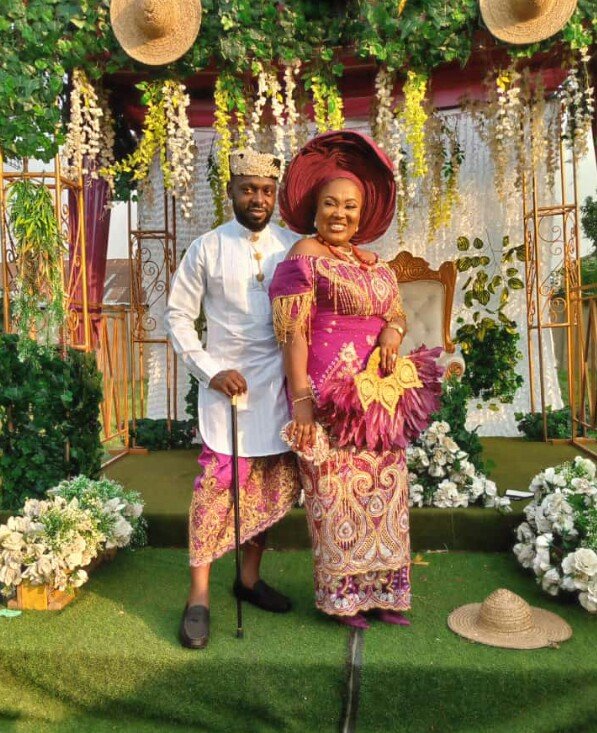
I was fortunate enough to be part of a series of amazing event that led to a wedding ceremony in the heart of Akwa Ibom state Nigeria, Akwa Ibom state is one of the southern state in the country, it's has amazing cultures and traditions, since they are along the shores of the river main occupation usually is fishing and sea foods, it was absolutely beautiful, it's something I'd love to be part of over and over again, during this times I was able to talk to a few of the locals here, who hinted me more on the proceedings of how things are done, cause each tribe have their own unique ways of conducting their marriage rites,
Here I will guide you through how efik/Ibibio traditional marriage rites is done.
It all begins when the groom to be schedules a date for locating the in-laws (Ndidiong ufok). In Akwa Ibom, this is the first stage in the entire process, the idea is a simple one, it literally means the groom-to-be locating the bride-to-be's house to formally meet with the bride's parent, in our native words *to know the road to the bride's family and relay his intention to them, Back in the day, it was advised that the groom comes alone or with a friend and a bottle of wine. It is rumored that the reason for this was, to ensure that of the parent were going to reject the groom, it could be done quietly and with very little family members present. It is just a casual visit to the bride's family. Once the groom has been approved by the family, he is allowed to make formal his intention. the date for this is entirely different from the day of the casual visit and is usually done whenever the couple deems fit.
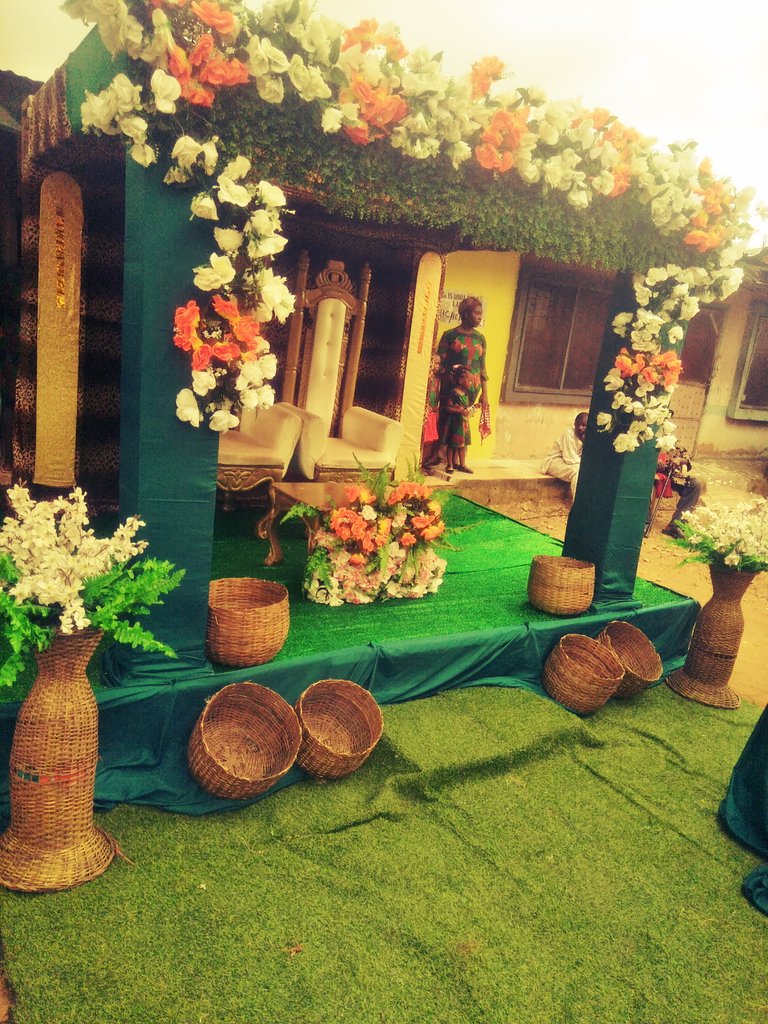
The next stage is called door knocking{Nkung udok}, this is the formal declaration of intentions by the groom, here the groom-to-be after being approved by the bride's family comes over to the bride's family house again, this time with preferably an elderly member of his paternal family although in cases were no such exist an elderly man from the clan can stand in, the elderly man, makes intention known formally and present few bottles of drinks, After this is achieved the groom's family is invited for the introduction ceremony and a list of things to be present at the ceremony is given to the groom's family the list will usually contains drinks items and a few other things to aid the introduction ceremony
Once the date for the introduction (Mbop)
Is set, the groom and his entire family or able representatives as well the bride's family assembles themselves in n a chosen venue. Here both families present a spokesman with the bride's family spokesman doubling as a moderator.
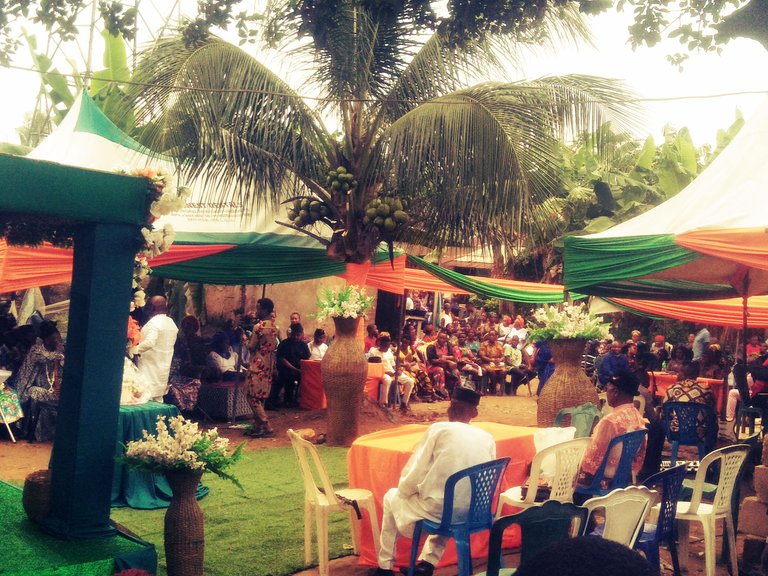
In Akwa Ibom the natives are very particular about food, they believe that all guest must be served food upon arrival in the bride's family, however the decision to serve the prospective in-laws food before or immediately after the Introduction is entirely up to you., most families would rather serve the food first. This is done because they believed that when a guest comes to your Home you welcome them by offering to them some of your best prepared delicacies, so after the meal IJ s served then the spokeman or mc will now asked the groom's family why they are here, it is at this point that the ceremony proper commences
The families get to know one another by questioning each other, family members also advice and pray for the couples, once all the formalities are done with, the item that were requested are now presented to the bride's family for crosscheck-in and approval, once the items are approved another list is drawn up for the groom's family to be presented at the traditional marriage. The bride's price is also negotiated.

The traditional Marriage (Usoro Ndo) is the wedding proper. The items on the list
Ought to have been presented prior to this day to ensure that every thing requested for is provided before the date. On this day the groom and his family make their way to the bride's village, upon their arrival the women and children of the village barricade the entrance to the villahe with road blocks, the women and children will make their request know to the groom's family and it is their duty to provide whatever they request for on the spot before the are allowed to the village, it is so because it is believed the women and children cut the grass on the road side, sweep the roads and keep the village clean, when all this is done the all the guest will drive up to the venue while the groom and his men will go to a separate location.

The event kicks off with beautiful meals presented neatly for the guest. The spokes man at the event introduces eacheal and explains to the guest that the daughter to be married can prepared every single meal mentioned and presented.
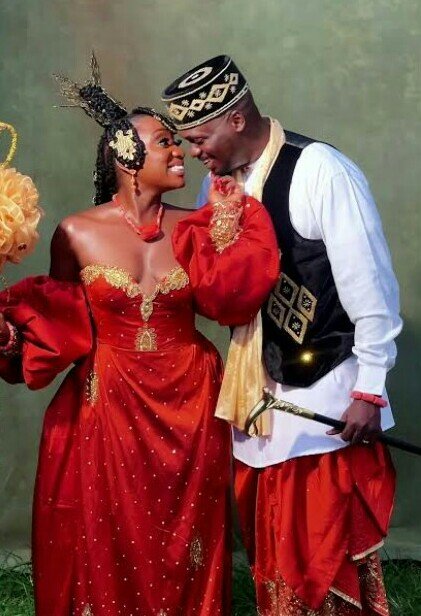
Akwa Ibom people pride themselves with the ability to cook different varieties of food very well and also to let the first know their daughter who is to be married as berm well trained and nurture to prepare th also, the food presented could vary from appetizers to proper meals such as Cassava chips and coconut (Edu ta Iwa), Roasted corn and pear, Roasted plantain and palm oil, palm kernel and GARRI, Afang Soup, Editan soup, Edu Lang ikong Atama soup EKPAN KUKWO, and lots other native meals also the villages and community may also have their own local meals, this just the few that are very popular among us.
All the different kinds of food are served to everyone presented including the groom, once every has Been served, the groom is now urshared in with his entourage, his age-grade and all the men presented will have to go bring him to the location, after some talks and test by the spokes person, he is asked to go and have his special reserved seat in a well decorated place
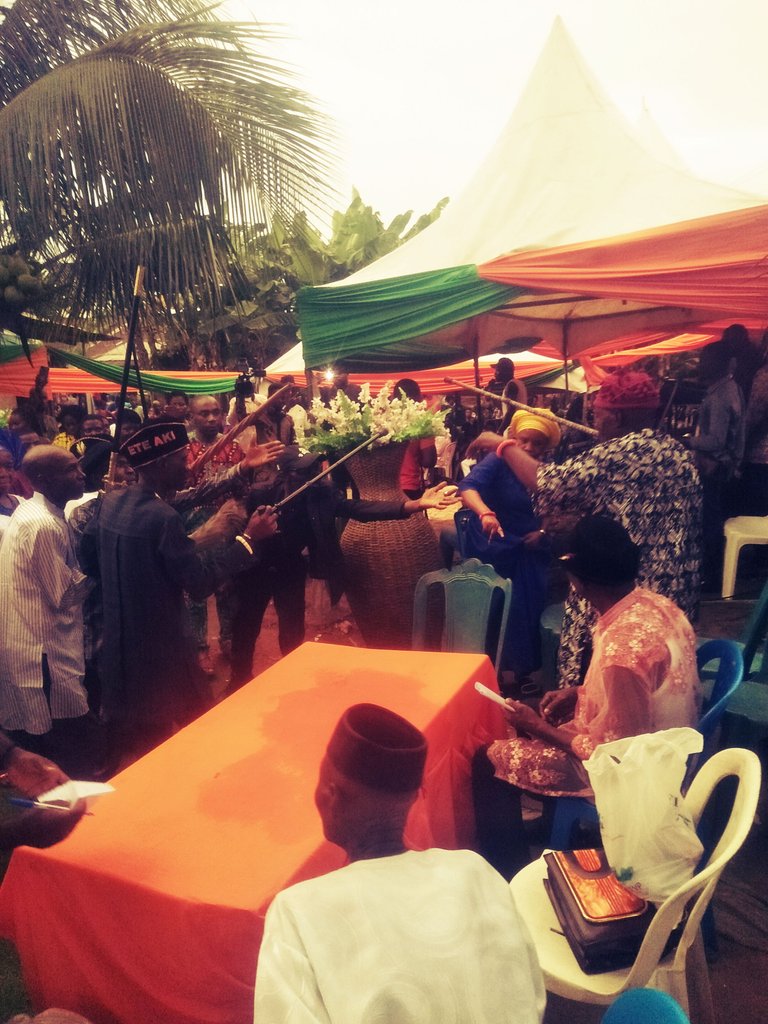
Afterwards The Elders woman in the bride's family is asked to go an bring in the bride she will be given some money as transport fare to go bring her, the bride and all her entourage, all the women, age-grade, youth of the host community will go and usher her into the venue,
In both cases it is always a joyful lively moment when the groom and bride are ushered in with lots of dancing, jubilation and excitment by everyone present.
At the end of the ceremony the bride will now officially follow the groom and his family home, she's now officially his wife according to our customs and traditions.



Congratulations @eminentsam48! You have completed the following achievement on the Hive blockchain And have been rewarded with New badge(s)
You can view your badges on your board and compare yourself to others in the Ranking
If you no longer want to receive notifications, reply to this comment with the word
STOPCheck out our last posts:
Hi @eminentsam48
I am impressed by the stages leading up to the wedding, the visits that the groom must make to the bride's family and then the way in which they present themselves. It's also beautiful to see how colorful marriage celebrations are in your culture. It's nice to see how they share food in a very cheerful and happy atmosphere. Thank you for sharing part of your culture.
Greetings and happy week.
Thank you so very much, I am glad you find our culture interesting, with time I'd love to share other aspect of our culture.....
Do have a great evening 😄
Delegations welcome! You've been curated by @plantpoweronhive!
smilesThank you very much @plantpoweronhive